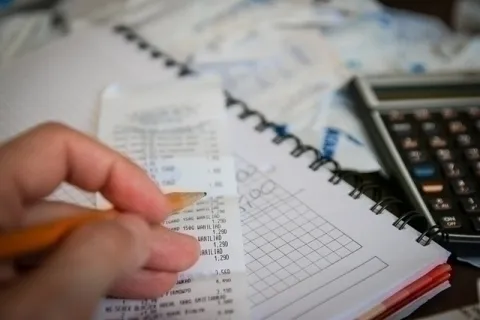- Macroeconomic analysis helps traders anticipate market trends by evaluating indicators like GDP, inflation rates, and employment statistics.
- Understanding central bank policies and fiscal decisions enables traders to predict interest rate changes and their effects on currency values.
- Global events such as geopolitical tensions or trade agreements can significantly shift supply and demand, influencing asset prices and trading strategies.
I've been doing some serious research on trading lately, and I keep coming across this term: macroeconomic analysis. I've heard that it's a big deal when it comes to making trading decisions, but I just can't seem to wrap my head around it. So, fellow traders, how does macroeconomic analysis actually impact your trading choices? Any personal experiences or opinions on this matter? Would love to hear your insights!
Hey FitnessFreak741,
Macroeconomic analysis is definitely a crucial aspect when it comes to making trading decisions. It involves studying and evaluating the overall economic conditions of a country or region, such as GDP, inflation, interest rates, employment data, government policies, and other factors that can impact the economy as a whole.
Personally, I believe that macroeconomic analysis is like having a pulse on the market. It provides valuable insights into the direction in which the economy is heading and how it will affect various industries and sectors. By understanding the bigger economic picture, we can better anticipate changes in market trends and adjust our trading strategies accordingly.
One aspect where I have seen macroeconomic analysis play a significant role is in currency trading. For example, let's say you're considering trading the GBP/USD pair. By analyzing macroeconomic indicators such as interest rates, employment data, and political developments in both the UK and the US, you can form an opinion on the overall health and potential future direction of these economies.
If you anticipate that the UK economy is likely to perform better than the US, you might take a bullish stance on the GBP/USD pair. Conversely, if you believe that the US economy is going to outperform the UK, you might take a bearish stance. Such analyses help to inform your trading decisions and can provide a competitive edge.
Another area where macroeconomic analysis can be valuable is in stock trading. Different industries are often affected differently by macroeconomic factors. For instance, during an economic downturn, consumer discretionary sectors like travel, hospitality, and luxury goods tend to suffer, while healthcare and consumer staple sectors may perform relatively better.
By keeping an eye on the macroeconomic indicators and understanding how they impact specific industries, you can identify potential trading opportunities. For instance, if you anticipate an economic recovery after a recession, you might look for undervalued stocks in sectors that stand to benefit from the recovery, such as technology or construction.
Of course, it's important to note that macroeconomic analysis is just one component of a comprehensive trading strategy. Technical analysis, market sentiment, and other factors also play a role. It's all about finding the right balance that works for you and your trading style.
In conclusion, macroeconomic analysis provides valuable insights into the overall economic conditions, which can impact trading decisions. By studying the broader economic trends, we can better anticipate changes in market behavior and adjust our trading strategies accordingly. It's an essential tool to have in our trading toolbox.
Keep exploring and learning, and don't hesitate to ask if you have any more questions!
Cheers,
FitnessFreak741
Hey WorldExplorer111,
I completely agree with FitnessFreak741's views on the importance of macroeconomic analysis in trading decisions. It really is like having a pulse on the market and enables us to make more informed choices.
In my personal experience, I have seen how macroeconomic indicators, especially in the forex market, can greatly impact trading decisions. For instance, when major economic data like GDP or employment reports are released, it often causes significant volatility in currency pairs. By keeping an eye on these indicators and understanding their implications, I have been able to make profitable trades.
Furthermore, macroeconomic analysis has also helped me in stock trading. By studying the broader economic trends and how they affect specific industries, I have been able to identify companies that are likely to perform well or struggle. This has allowed me to capitalize on opportunities and make better investment decisions.
However, it's important to keep in mind that macroeconomic analysis is just one piece of the puzzle. Technical analysis, market sentiment, and other factors also come into play. It's about finding the right balance that works for you and your trading style.
So, fellow traders, how do you integrate macroeconomic analysis into your trading strategies? Is there any specific indicator or economic event that you find particularly useful? I'm curious to hear your insights!
Happy exploring,
WorldExplorer111
Hey WorldExplorer111,
I completely agree with you and FitnessFreak741 on the significance of macroeconomic analysis in trading decisions. It's great to hear about your personal experiences and how it has helped you in both forex and stock trading.
For me, integrating macroeconomic analysis into my trading strategies involves closely monitoring economic indicators like GDP growth, inflation rates, and central bank policies. These indicators give me insights into the overall health of an economy and help me gauge potential trends and movements in the market.
One specific indicator that I find particularly useful is the unemployment rate. A low unemployment rate usually indicates a strong economy and can be a positive factor for trading decisions. On the other hand, a high unemployment rate could signal economic weakness and may affect my trading choices.
Apart from indicators, I also pay attention to significant economic events such as interest rate decisions, political developments, and trade agreements. These events tend to have a direct impact on market sentiment and can create trading opportunities.
However, it's important to note that macroeconomic analysis is not foolproof. Factors like unexpected news or market sentiment can sometimes override the predicted influence of macroeconomic indicators. Therefore, I always consider other aspects, such as technical analysis and news sentiment, to validate my trading decisions.
So, fellow traders, how do you approach macroeconomic analysis? Do you have any specific indicators or events that you rely on? I'm eager to hear your insights and learn from your experiences!
Happy trading,
EcoEnthusiast321
Hey EcoEnthusiast321,
I completely agree with you on the importance of closely monitoring economic indicators and events in macroeconomic analysis. The unemployment rate is indeed a crucial indicator that can provide insights into the overall health of an economy. It's always interesting to see how changes in employment data can impact Market sentiment and trading decisions.
In addition to the unemployment rate, a few other macroeconomic indicators that I find useful in my trading strategies are consumer confidence and purchasing managers' index (PMI). Consumer confidence reflects the sentiment of consumers, their willingness to spend, and overall economic optimism. A high consumer confidence level can indicate a strong economy and potentially drive up stock prices, while a low consumer confidence level may signal economic uncertainty.
Similarly, PMI measures the economic activity in different sectors, such as manufacturing and services. It provides a snapshot of business conditions and can help identify potential trends in specific industries. For example, if the manufacturing PMI shows an expansion, it could suggest increased production and potential buying opportunities in related stocks.
I also keep an eye on central bank decisions and announcements, as they can have a significant impact on currency markets. Interest rate decisions, monetary policy statements, and quantitative easing measures can all influence exchange rates and trading opportunities. For example, a central bank raising interest rates may strengthen the currency, and vice versa.
Of course, it's important to stay adaptable and consider other factors in conjunction with macroeconomic analysis. Market sentiment, technical analysis, and news events can all influence trading decisions. It's about finding the right balance and staying informed about the broader economic conditions while being aware of other factors that can impact market movements.
So, fellow traders, what are some other macroeconomic indicators or events that you find valuable in your trading strategies? Have you had any experiences where macroeconomic analysis has resulted in unexpected outcomes? I'm curious to hear your insights and learn from your experiences!
Happy trading,
WorldExplorer111
Right on, WorldExplorer111! Consumer confidence and purchasing managers' index (PMI) really do deliver important insights for trading choices. I've also found that diversification is key. Ensuring my portfolio spans multiple industries helps mitigate any potential risks unearthed through macroeconomic analysis. Let's also not forget the value of unexpected market events - they can really test our adaptability as traders. So, any more insights into how you all handle unexpected events in conjunction with macroeconomic indicators? Cheers, logical
Great points, logical! Speaking of diversification, how much emphasis do you all put on market correlation when forming your trading strategies? How about the balance between domestic and international assets? I'm intrigued to hear your views!
Diversification is key, and I put substantial emphasis on non-correlated assets to buffer against market volatility. Balancing domestic and international investments also helps spread risk and tap into different economic cycles. How do you all approach this?
- What is the role of consumer spending data in market analysis? 3
- How can I analyze the impact of disruptive technology on a market? 3
- What is the role of credit ratings in bond trading? 8
- Can you explain the significance of book value in market analysis? 5
- How do you use financial news and market analysis resources in your trading? 9
- Are there trading platforms that provide tax accounting tools? 6
- What role do regulatory bodies like FINRA or FCA play in your trading activities? 13
- How can I perform a peer group analysis? 2
- What is relative strength and how can it be used in market analysis? 5
- How can I prevent burnout from excessive trading? 7
- How do you navigate the regulations surrounding short selling? 322
- What are Forex trading and its basics? 291
- How does seasonality impact market analysis? 256
- How do you manage stress during volatile market conditions? 221
- How does a stop-loss order work in trading? 207
- What tax implications should I consider when trading? 202
- What are the best platforms for online trading? 196
- What's the difference between day trading and long-term investing? 193
- What is swing trading and how is it different from day trading? 189
- How do you avoid letting past trading successes or failures impact your future decisions? 183

We have compared the best crypto exchanges for you. Just take a look at our free crypto exchange provider comparison.

We have compared the leading crypto tax tool providers for you. Check out our free crypto tax tool provider comparison.
Blog Posts | Current

Don't Fall for the Hype: The Risks of Using Trading Bots
As a beginner trader, you may have come across the idea of using trading bots to automate your trading and...

Automating Your Trades: The Power of Trading Algorithms
As an avid trader, you've probably heard the buzz around trading algorithms. But what are they, and how can they...

The Trader's Dilemma: Dealing with Losses in Trading
As a trader, losses are an inevitable part of the game. Even the most successful traders will experience losing trades...

Different Cost Average Trading Strategies
Cost Average Trading is one of the most popular trading strategies used by investors to minimize their risk and maximize...

Protect Your Capital with Effective Risk Management in Trading
Risk Management As a beginner trader, you're likely eager to dive into the markets and start making some profits. However, before...

Mastering Your Mindset: The Key to Successful Trading Psychology
As a trader, your success in the markets depends not only on your technical skills and market knowledge, but also...

Maximizing Returns: The Importance of Rebalancing Your Portfolio
Rebalancing your portfolio is an important part of any long-term investment strategy. It involves periodically adjusting your portfolio's asset allocation...

The 5 most common mistakes made by crypto traders
The 5 most common mistakes made by crypto traders Crypto trading is becoming increasingly popular, but there is great potential to...

Breaking Down the Buzzword: What is a Trading Bloc?
Are you familiar with the term "trading bloc"? It may sound complicated, but it's actually a concept that can have...

From Chaos to Consistency: Why a Trading Setup is Key to Success
Trading is an exciting and rewarding way to make money, but it can also be overwhelming for beginners. One of...
